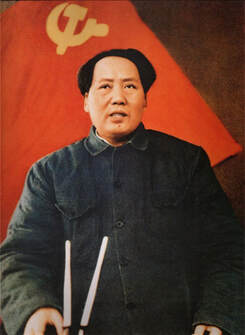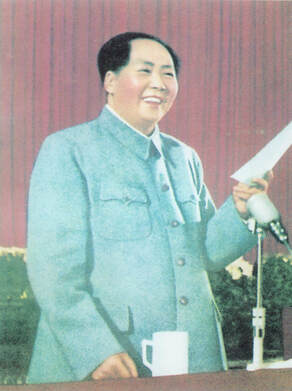CHAPTER ONE “A Confucian Childhood”This is an important work. Over the next few weeks I will be making entries one chapter at a time. Short’s bio of Mao is one of the best around, it could have been subtitled “Everything You Ever Wanted to Know About Mao.” The review has 16 parts. Short aptly begins with December 26, 1893 in Hunan with Mao’s birth. His mother was a practicing Buddhist and, Short says, was disappointed when the teenage Mao gave up the faith. Her name gives some idea of the status of women at the time, Her name was Wen Qimei “Sister Seven” as girls were not given names, just numbers. Mao came from a well off peasant family and his father was able to send him to the village school to get a traditional Confucian education. Short tells us that Mao learned three main principles from Confucianism. First, every person and every society “must have a moral compass.” Second, “the primacy of right thinking” which means that one’s thoughts had to be morally right: this was what Confucius called “virtue.” Third, “self-cultivation” was very important. These are not, I think, bad precepts to inculcate in children. Short says that all his life Mao was influenced by Confucius, Zhuangzi (a Daoist) and Mozi as well as Lenin and Marx. He thinks the Confucian element was “as least as important” as the Marxist. One of the major influences on his life, according to Mao himself, happened when he was 16 years old. These were the food riots of 1910 in Changsha. There was plenty of food for the people of Changsha but it was all shipped out to other places where it could be sold for more money so the locals all died from famine. People died in droves, sold their children, and even practiced cannibalism to survive. A nice introduction to the capitalist market for the young Mao. This chapter ends with a discussion of modernism in the 1890s. Chinese were studying abroad and returning to introduce Western ideas into China. Short mentions Kang Youwei who updated Confucianism for the modern world and Liang Qichao who “took Charles Darwin’s thesis ‘the survival of the fittest’ and applied it to China’s national struggle....” Mao’s world was one of ferment. I should note that “survival of the fittest” was actually the slogan of Herbert Spencer, not Charles Darwin. Spencer adapted Darwin’s ideas to society to get a form of “social Darwinism.” Darwin was only interested in biology and his term was “natural selection.” Up Next, Chapter Two “Revolution” and 3 “Lords of Misrule” AuthorThomas Riggins is a retired philosophy teacher (NYU, The New School of Social Research, among others) who received a PhD from the CUNY Graduate Center (1983). He has been active in the civil rights and peace movements since the 1960s when he was chairman of the Young People's Socialist League at Florida State University and also worked for CORE in voter registration in north Florida (Leon County). He has written for many online publications such as People's World and Political Affairs where he was an associate editor. He also served on the board of the Bertrand Russell Society and was president of the Corliss Lamont chapter in New York City of the American Humanist Association.
0 Comments
Leave a Reply. |
Details
AuthorWrite something about yourself. No need to be fancy, just an overview. Archives
November 2021
Categories |


 RSS Feed
RSS Feed